 Petzlover
Petzlover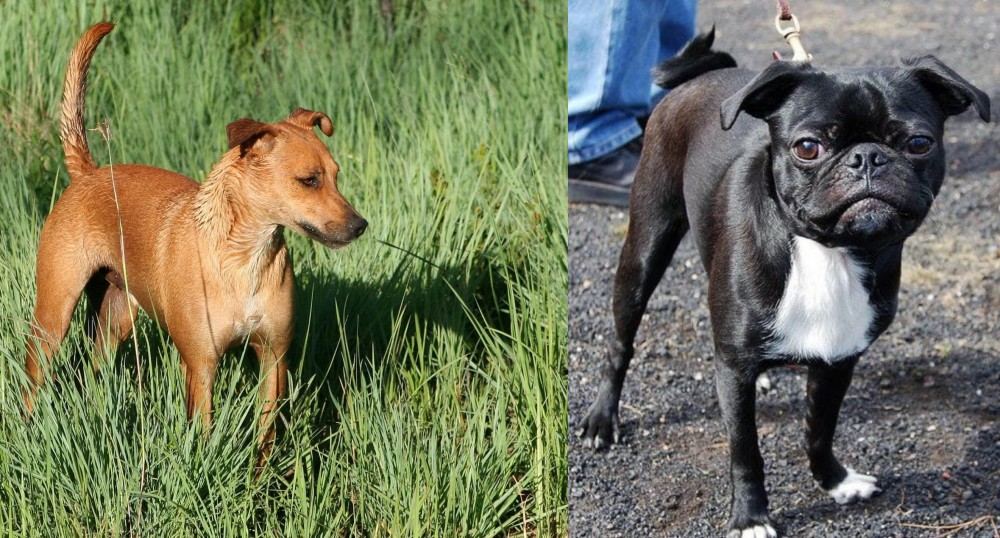 Africanis is originated from South Africa but Bugg is originated from United States. Africanis may grow 22 cm / 9 inches higher than Bugg. Africanis may weigh 34 kg / 75 pounds more than Bugg. Both Africanis and Bugg has almost same life span. Both Africanis and Bugg has same litter size. Africanis requires Low Maintenance. But Bugg requires Moderate Maintenance
Africanis is originated from South Africa but Bugg is originated from United States. Africanis may grow 22 cm / 9 inches higher than Bugg. Africanis may weigh 34 kg / 75 pounds more than Bugg. Both Africanis and Bugg has almost same life span. Both Africanis and Bugg has same litter size. Africanis requires Low Maintenance. But Bugg requires Moderate Maintenance
 Africanis is one of the original African breeds. This breed was not shaped by humans, but they went through the process of natural selection. Humans did not affect this breed by standard breeding practices. Through the history, this breed became stronger and stronger because only the strongest of the breed survived. Africanis descent is the early dog that is originally from ancient Egypt. Approximately 4500 BC was the period of first data about this breed.
Africanis is one of the original African breeds. This breed was not shaped by humans, but they went through the process of natural selection. Humans did not affect this breed by standard breeding practices. Through the history, this breed became stronger and stronger because only the strongest of the breed survived. Africanis descent is the early dog that is originally from ancient Egypt. Approximately 4500 BC was the period of first data about this breed.
As time passes through, Africanis became more and more popular through the whole continent. This breed migrated with people for thousands of years, and now, a modern Africanis is similar to Greyhound dog. The original Africanis can be found in tribes and more traditional people. One of the oldest breeds in the world is one of the lasts that has been recognized by Kennel Union of Southern Africa.
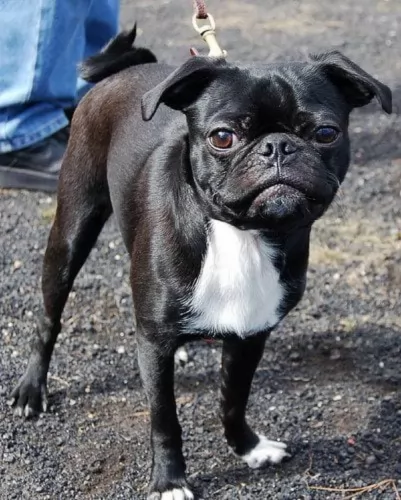 The Bugg is generally a cross between a Boston Terrier and a Pug. There is no clear history in terms of who started this hybrid dog that was recognized initially be the IDCR or International Designer Canine Registry in 2009. This very cute little dog has become increasingly popular in a very short period of time. Crossing these two breeds created a small dog that loves to sit in your lap as well a romp and play.
The Bugg is generally a cross between a Boston Terrier and a Pug. There is no clear history in terms of who started this hybrid dog that was recognized initially be the IDCR or International Designer Canine Registry in 2009. This very cute little dog has become increasingly popular in a very short period of time. Crossing these two breeds created a small dog that loves to sit in your lap as well a romp and play.
At this time the Bugg is recognized by several of the hybrid and designer registries and clubs. This would include in addition to the IDCR:
 Africanis origins from South Africa. The average Africanis weights 25-45 kg, with a height of 50-60cm, while females are slightly smaller. They are medium sized dogs who are friendly, but also independent and territorial. They can are good pets for training, but it requires persistent work.
Africanis origins from South Africa. The average Africanis weights 25-45 kg, with a height of 50-60cm, while females are slightly smaller. They are medium sized dogs who are friendly, but also independent and territorial. They can are good pets for training, but it requires persistent work.
The lifespan of Africans is 10-12 years, but lifespan always depends on health, genetics, and care of the dog. Therefore, if they are healthy and well cared they can live longer than average.
Litter Size variates a lot, so female can have 2-8 puppies.
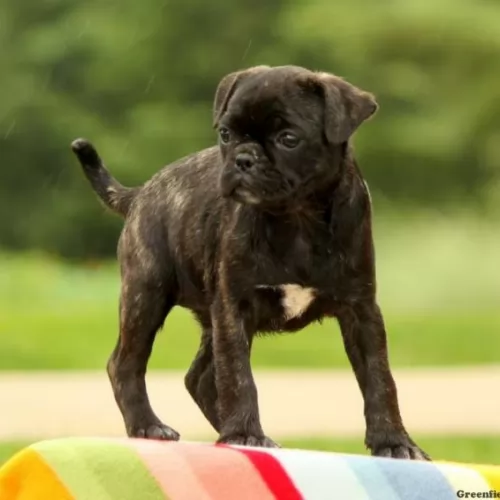 This cross between the Boston Terrier and Pug can have several different looks depending upon whether the individual dog resembles the Pug or the Boston more. Some usual but not always physical characteristics include curly tails, droopy ears and a stocky body in a small dog. They usually have soft, straight coats. Most Buggs look more like the Boston than the Pug although they have the more smashed muzzles and shorter legs of the Pug. The heads are round with almond shaped eyes.
This cross between the Boston Terrier and Pug can have several different looks depending upon whether the individual dog resembles the Pug or the Boston more. Some usual but not always physical characteristics include curly tails, droopy ears and a stocky body in a small dog. They usually have soft, straight coats. Most Buggs look more like the Boston than the Pug although they have the more smashed muzzles and shorter legs of the Pug. The heads are round with almond shaped eyes.
 Africanis is a very good and healthy breed. They are very intelligent and friendly breed. They are not an aggressive breed, but they tend to protect the master. Africanis is a natural guard dog. This breed is used to being alone because for the centuries they migrated close to humans, but they also have been independent.
Africanis is a very good and healthy breed. They are very intelligent and friendly breed. They are not an aggressive breed, but they tend to protect the master. Africanis is a natural guard dog. This breed is used to being alone because for the centuries they migrated close to humans, but they also have been independent.
Training Africanis is not very hard. They tend to learn very quickly. Positive training with awards is the best way to train your Africanis. The old-fashioned way of training dogs with punishment is not recommendable for Africanis. They are intelligent breed who requires patience and constancy.
They are very good with other animals too, but they need proper socialization. Africanis requires daily exercise so if you keep your dog in the apartment it should have few daily walks. Africanis can live in the apartments though.
Overall, they are very healthy breed, so with regular vet checks and proper care, they are perfect pets for the whole family since they are great and gentle with small children and kids.
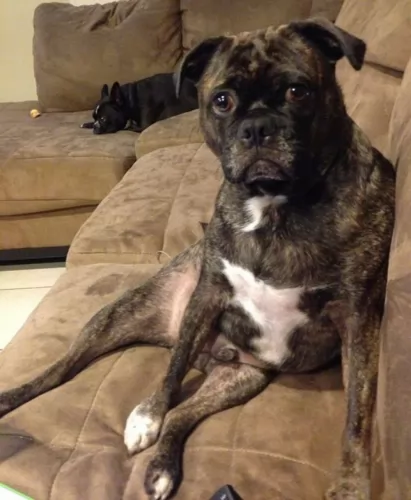 This crossbreed is easily trainable and highly intelligent. They might be stubborn like the Boston or devoted like the Pug. They can have characteristics of both parents and be loving, playful lapdogs. They love to play with children, but they can be territorial like the Boston. The Bugg is a small dog with a big attitude. They are affectionate and sweet, friendly towards people and other animals. Since the Boston and the Pug have very similar characteristics and temperament, you can have a pretty good idea what your Bugg will be like.
This crossbreed is easily trainable and highly intelligent. They might be stubborn like the Boston or devoted like the Pug. They can have characteristics of both parents and be loving, playful lapdogs. They love to play with children, but they can be territorial like the Boston. The Bugg is a small dog with a big attitude. They are affectionate and sweet, friendly towards people and other animals. Since the Boston and the Pug have very similar characteristics and temperament, you can have a pretty good idea what your Bugg will be like.
 The great thing about Africanis is that this breed is very healthy. Thousands of years of evolution made this breed one of the toughest breeds in the world. They can survive very tough conditions. Africanis has a very healthy immune system too. It evolves so strong that there are no internal or external parasites that can harm the dog.
The great thing about Africanis is that this breed is very healthy. Thousands of years of evolution made this breed one of the toughest breeds in the world. They can survive very tough conditions. Africanis has a very healthy immune system too. It evolves so strong that there are no internal or external parasites that can harm the dog.
 Africanis has used to eat everything, so this breed does not require any special treatments. 2-2.5 cups of dry high-quality food would be more than enough to have healthy and well feed the dog. But have in mind that feeding the dog depends on daily activity and size. If the dog is more active, an extra cup wouldn’t be a problem for a dog to eat.
Africanis has used to eat everything, so this breed does not require any special treatments. 2-2.5 cups of dry high-quality food would be more than enough to have healthy and well feed the dog. But have in mind that feeding the dog depends on daily activity and size. If the dog is more active, an extra cup wouldn’t be a problem for a dog to eat.
Africanis puppy should eat more times per day than an adult dog. 3-5 meals per day of quality dry food are good measure to feed your puppy Africanis.
Since Africanis has short hair they are very easy to groom and care. Few brushes on a weekly basis with occasional bathing would be more than enough to have a clean and healthy dog.
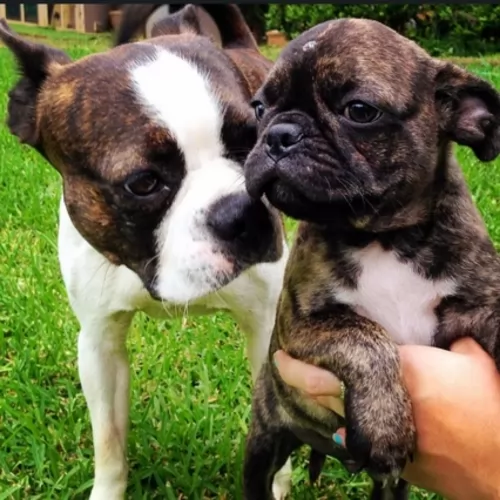 Buggs love to eat and will anything you give them and some things that you don’t. They can become obese very easily so watch their food intake. These small dogs should be eating food made for small dogs. Feed them only ¾ to 1 and ½ cups of dry food per day split into two meals.
Buggs love to eat and will anything you give them and some things that you don’t. They can become obese very easily so watch their food intake. These small dogs should be eating food made for small dogs. Feed them only ¾ to 1 and ½ cups of dry food per day split into two meals.
The Bugg can inherit health problems from either the Boston or the Pug, or they may be healthier than either parent breed. Both of these parent breeds are given to Brachycephalic issues due to their mashed faces. They could face respiratory issues or eye issues because of this.
The Bugg is a very energetic and playful dog. They love to run, play and go on walks. Just one walk or play session per day is enough exercise for this little dog. You can easily have your play time inside if you don’t have a fenced yard. Because of their faces and breathing issues do not let them get overheated.